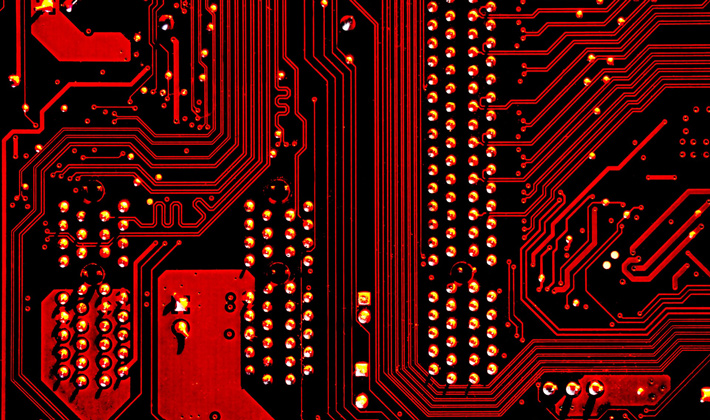Curso Online
Digital Ergonomics
SOMOS
EDUCACIÓN
CONTINUA

Objetivos
Adressed to
Method
Academic Content
Ergonomics issues will be discussed in work environments focused on understanding the bridges between this issue and the digital world. This section will show the evolution of ergonomics and emphasize the importance of ergonomics in new industrial contexts.
Lecturer/Teacher: Saavedra-Robinson, Luis. IE, PhD
Section B – Physical Ergonomics (Captiv)
In this section we will explain the subject of physical effort, the analysis of movement and its importance in industrial environments. For this, we will carry out a demonstration of the use of a direct capture equipment for physical ergonomics contexts.
Lecturer/Teacher: Pelaez, Sebastian. MSc.
Section C – Cognitive Ergonomics “Eye-Tracking”
In this section we will explain the subject of cognitive load and its importance in industrial environments. For this, we will carry out a demonstration of the use of direct capture equipment for cognitive ergonomics contexts.
Lecturer/Teacher: Berrio, Shyrle. MSc. PhD(c)
Section D – Digital Ergonomics. Applications in Industry
In this section of the course, the application of digital environments around ergonomics will be presented. For this, we will have the application of these concepts on the automotive industry showing the main strengths and challenges at the time of implementation
Lecturer/Teacher: Hensel-Unger, Ralph, Dr.-Ing.
Conferencistas
Industrial engineering planner at AUDI AG
Main Topics:
• Project leadership: Further development of Audi’s team work
concept
• Project leadership: Piloting and implementation of exoskeletons at
Audi
• Project leadership: HWD-Analysis by means of Motion Capturing
Saavedra-Robinson, Luis. IE, PhD:
Industrial Engineer from Pontificia Universidad Javeriana Bogotá. PhD in Ergonomics from the Polytechnic University of Catalonia, Barcelona, Spain. Consulting experience in hygiene industrial at oil & gas industry. As a researcher, he looking for the relationship between industrial process, methods and productivity with ergonomics conditions at the workplace, recollecting, analyzing and interpreting a Biomechanical, Anthropometrical and Physiological data for different projects on several sectors: Flowers, Automobile, Sugar Cane, Construction, Foods & Grocery, and Transport among others. As an Assistant Professor, he was the Industrial Engineering undergraduate degree director in Cali, Colombia, where, he leads the international accreditation ABET for the academic program, coordinated the redesign of the curriculum and participated in the national industrial engineering networks (ACOFI). His recent work aims to relate human factors to new trends in the industry (human modeling in industrial environments, industry 4.0, logistics and others).
Mondragón, Iván. MSc, PhD:
Electrical engineer from Universidad Nacional de Colombia, (October 2002). He joined the master program at Universidad de los Andes (Colombia) obtaining a M.Sc. in Electronics and Computers Engineering in May 2005. From 2005 to 2006 he worked as Power Transformers Test Field Engineer at Siemens Andina S.A. (Colombia). After it, he moved to Computer Vision Group at DISAM -ETSII- Universidad Politécnica de Madrid (Spain) obtaining a Ph.D degree in Automatic and Robotics in November 2011. While completing his Ph.D he gained extensive experience with Unmanned Aerial Vehicles and in particular in vision techniques for control and navigation of Autonomous Helicopter and Multirotor platforms. From August 2013 to February 2019, he collaborates as editor of Journal of Intelligent & Robotic Systems JINT. Since 2013, he is a full time professor and director of the Industrial Automation Technology Center (CTAI), Department of Industrial Engineering at Pontificia Universidad Javeriana. He is currently working on computer vision applied to Unmanned Aerial Vehicles as well as Flexible Manufacturing Systems FMS, Quality Inspection, virtual reality (CAVE system) and Industry 4.0.
Industries
Automotive
Manufacturing
Agriculture
Oil & Gas
Descuentos
4% por pronto pago en curso o diplomados, cancelando 30 días calendario previos a la fecha de inicio (acumulable con otros descuentos).
10% egresados, afiliados a Cafam (válido para Colombia)
Apertura y fecha de inicio: la apertura y la fecha de inicio del
programa dependerá del mínimo número de inscritos,
establecido por la Universidad.
Certificación: se otorgará certificación a quien haya
cumplido como mínimo con el 80% de las actividades
programadas en el aula.
Forma de pago: efectivo, cheque de gerencia, tarjeta de
crédito (recibimos todas las tarjetas, cuenta de cobro).
Válido para Colombia:
**Art. 92 Ley 30 de 1992 - Las Instituciones de
Educación Superior no son responsables del
I.V.A.
**Numeral 6 del Art. 476 Estatuto Tributario
(ET) - Servicios excluidos del impuesto sobre
las ventas.